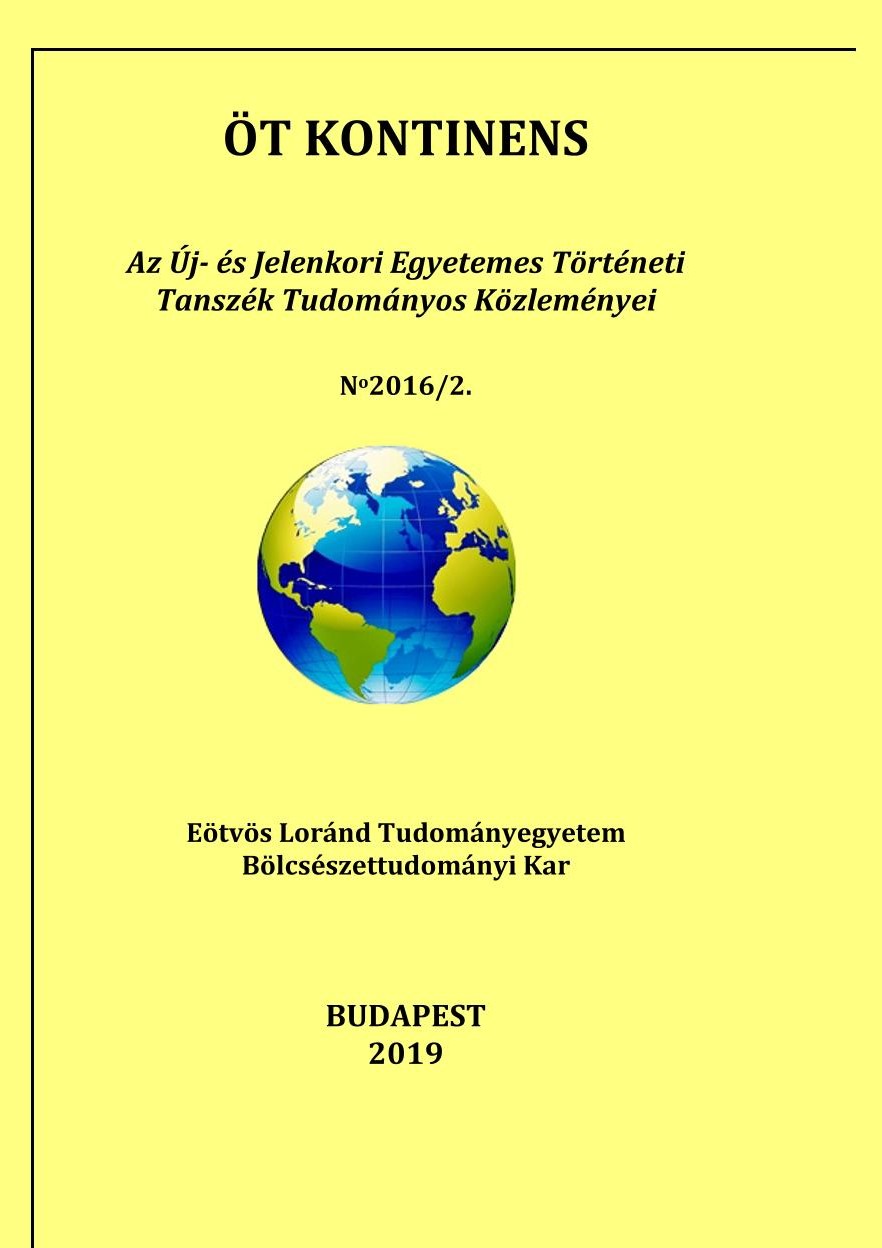The United States'relations with the fascist Italy in the decade following the First World War
The United States'relations with the fascist Italy in the decade following the First World War
Author(s): Gergely NagySubject(s): Diplomatic history, Economic history, Political history, 19th Century, Interwar Period (1920 - 1939)
Published by: Eötvös Loránd Tudományegyetem, Új-és Jelenkori Egyetemes Történeti Tanszék
Keywords: Italy–United States relations; World War I; war debts and reparation; Italian fascist; Mussolini’s foreign policy; Washington Conference; Occupation of Ruhr; Corfu incident; Matteotti crisis;
Summary/Abstract: The United States joined World War I in April 1917 hence contributed militarily and economically to the victory of the Entente Powers. In spite of the emerging Italian–American conflict at the Paris Peace Conference, the relationship between the two countries has grown in value in the new international order after the war. Stability on the European continent was important for the United States so that the war debts of the Entente Powers could flow smoothly. Apart from some conflicts, in the 1920s Rome and Washington maintained a good relationship and worked together on a number of important issues. Italy–United States relations were well-balanced during this period, and Republican administrations of the time saw the fascist government as able to stabilize Italian relations. Along with the transformation of the European system of power, the Italy–United States relations were also crucial due to the Italian minority living in the US, but the most important segments of the post-World War II Italy–United States relations were the negotiations of Italian war debts to the United States.
Journal: ÖT KONTINENS
- Issue Year: 2016
- Issue No: 2
- Page Range: 145-158
- Page Count: 14
- Language: English

